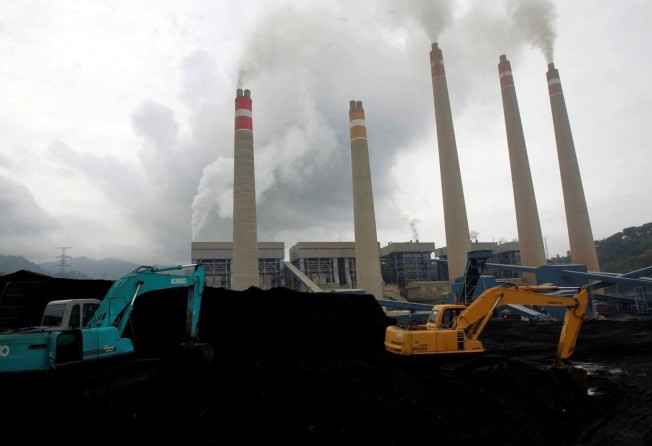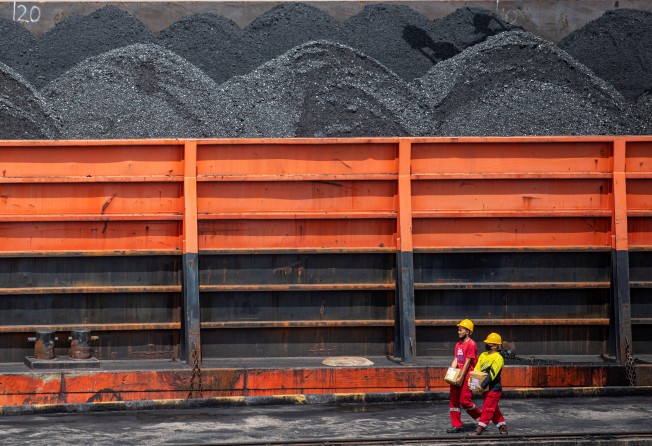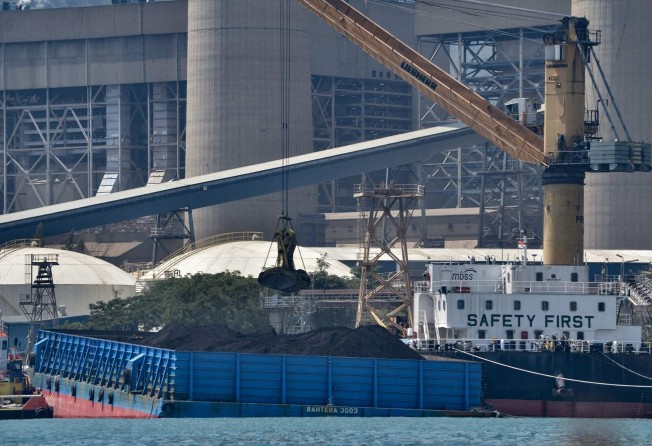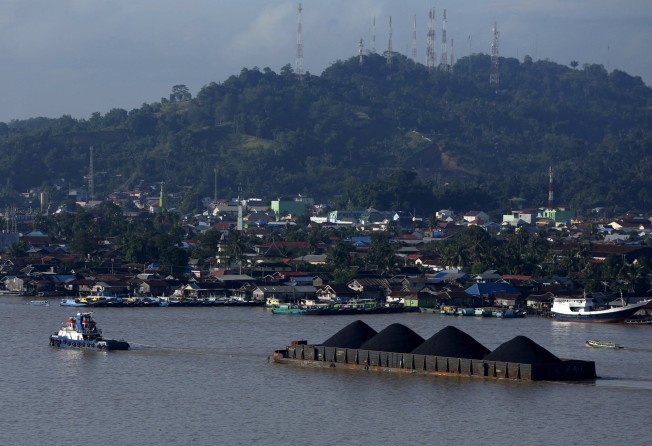
Malaysia seeks ‘amicable’ solution to Indonesian coal export ban as Tenaga seeks alternative sources
- As Jakarta’s restrictions drag on, Malaysia’s largest power firm is turning to suppliers including Australia, South Africa and Russia
- While Indonesia is allowing some vessels to depart, progress has been slow, threatening to sour relations with importers like Japan, Philippines and South Korea

The Malaysian government is in talks with Indonesia for an “amicable” solution to Jakarta’s coal export ban, as its largest power firm Tenaga Nasional Berhad (TNB) ramps up its search for alternative sources.
Miners in the region said the government-owned private power company’s fuel services department had put out a tender for spot purchases of coal in the past week as the ban drags on, putting more importers in the region on alert.
While Indonesia has signalled an easing of its restrictions, allowing a handful of coal-carrying vessels to depart, progress has been slow, contributing to jitters among importers in the region.
As most coal supply contracts are long-term, power plants and importers resort to spot or “on-the-spot” purchases to supplement sudden unplanned shortages.
TNB said it was mitigating Indonesia’s coal export ban by looking for sources overseas, rejigging supplies to its plants, and considering alternatives like distillate fuel, a derivative of crude oil.
“As a whole, the implementation of an export ban on Indonesia’s coal will impact not only TNB but the whole energy industry in Malaysia,” said TNB Power Generation managing director Nor Azman bin Mufti when asked about the spot tender.
“At TNB, we are mitigating this by rescheduling delivery to the coal-fired power stations in Peninsular Malaysia and securing substitute sources of coal including from countries such as Australia, South Africa and Russia.”
“We hope the temporary ban will be eased if not lifted soon and we are in full support of the ongoing dialogue between the governments of Malaysia and Indonesia for an amicable solution.”

Key buyer
Malaysia accounts for about 7 per cent of Indonesia’s coal exports, on par with other key buyers such as Japan and South Korea, according to 2020 data published by the Indonesian Coal Mining Association. Malaysia also generates electricity with gas and hydropower.
Last week, Indonesia, the world’s largest thermal coal exporter, said it would allow 37 coal-carrying vessels to leave port and prioritise exports for miners who had met their local quota.
It had previously banned all exports due to a local supply crunch at the start of the year. That shortage came about after some miners failed to hand over 25 per cent of their production as required under the local domestic market obligation (DMO) policy. Under that policy, the supply was sold at a capped price of US$70 a tonne.
High calorific value thermal coal currently fetches up to about US$150 a tonne and hit more than US$250 a tonne last year.
A shortage at the Indonesian state utility company Perusahaan Listrik Negara (PLN) was at the heart of the storm. PLN has since restocked, though it is yet to signal it is in the clear.
On Friday, the Indonesian energy minister approved 18 vessels carrying 1.3 million tonnes of coal for departure. Another 16 other vessels – owned by miners who had not yet met their DMO – were still awaiting clearance and a further three were still being loaded, according to Reuters.
Malaysia is among a group of countries looking to mitigate the fallout from the Indonesian supply squeeze that has rattled the Philippines, Japan and South Korea. All three have lobbied Jakarta to resume exports, with Manila saying the abrupt suspension would be detrimental to economies that rely on coal for power generation.

Japanese brokerage Nomura in a research note last week said it believed “concerns expressed by key trading partners Japan and Korea are also likely to carry significant weight, given the Indonesian government’s efforts to attract foreign direct investment”.
Credit ratings agency Fitch, in a note last week, flagged the possibility that the disruptions could “sour relations with key export markets”, with the risk of Japan and Korea diverting their orders.
“This is not our baseline assumption, but if exports are subject to further disruption the risk might increase,” Fitch said.
TNB said it was also working on securing a potential alternative supply of distillate fuel to power local utilities “in the near future” in an effort to “prolong coal stock availability”.
However, TNB’s Nor Azman said the initiative, which faced cost and logistical challenges, was still subject to approval and further discussions between stakeholders such as regulators and fuel suppliers would be needed.
He also said the utility was increasing its green energy supply “aggressively” to achieve its sustainability targets by 2025.
For now, Nor Azman said TNB’s power stations “consistently maintained” sufficient inventories of coal and were able to sustain power generation for the more populous west Malaysia.

Jakarta’s solution
The crisis has prompted Jakarta into action. Last week, senior minister Luhut Panjaitan said the government was looking to eliminate the DMO and replace it with a new levy.
The proposed policy would allow state utilities to buy coal at market prices rather than a capped price of US$70 a tonne.
To keep a lid on local electricity prices, the government will impose a levy of the difference between the capped price and the market price on export-oriented coal exporters.
The plan would shift the burden of additional costs onto these bigger coal producers but benefit smaller mines which are now able to sell at market prices.
The Jakarta policy newsletter, Reformasi Weekly Review, said the plan had raised concerns over potential conflicts of interest for Luhut.
The Luhut-founded business group TBS Energi Utama Tbk - previously named Toba Bara Sejahtera - which was effectively operating as a small miner, stood to benefit from the policy even though Luhut had said previously he was focused on government duties and sold a large parcel of his ownership to a Singapore fiduciary trust, Highland Strategic Holdings.
“Whether Luhut truly divested, and how, is unclear. Without clarity, suspicions will revolve around whether Luhut is currently presiding over the crafting of a new tax policy that will directly impact the main business of his primary asset, TBS Energy,” Reformasi said.